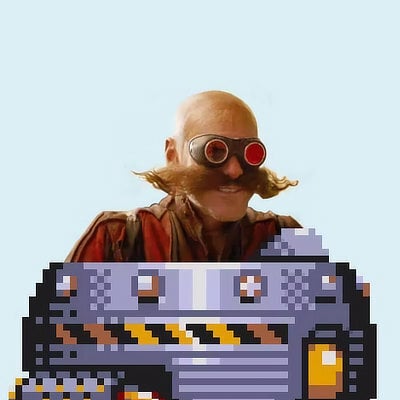Apart from being open source what is Linux? Could I not create my own operating system that is different to windows or Macos and call it Steve, again there might be an awnser for this and sounds stupid but its more out of curiosity.
You can 100% create your own kernel for an operating system, and call it Steve
Hypothetically, could a guy called Linus create his own kernel and name it after himself?
Linux actually stands for “Linux is not Unix.” Recursive acronyms were a bit of a geek inside joke at the time.
Sounds perfect… Just disappointed that Steve os has not been released :/ I can hope though!
Don’t let your dreams be dreams.
You can 100% create your own kernel for an operating system, and call it Steve
But would it be in honor of Steve Jobs, Steve Ballmer, or Steve Seagal?
Minecraft Steve. Definitely
“Linux” has two meanings. One of them is the kernel itself; another is a collection of operating systems, that Stallman would call “GNU plus Linux” instead.
The later involves two factors. A “hard” one is the presence of the Linux kernel; but there’s also two softer and fuzzier ones:
- the operating system behaves like other OSes that the user calls “Linux”. For example you’re expected to have a /home/username, you can install a different DE/WM if you want, this kind of stuff.
- the OS is open in letter and in spirit. This is ideological but ideology is damn important when dealing with Linux.
A good example of both is ChromeOS: people don’t usually call it “Linux”, even if it uses the Linux kernel. It’s simply too atypical in behaviour, and ideologically too distant from the open source movement.
Linux is technically just the kernel, which is essentially device drivers. The rest of the OS that talks to the kemel and runs the UI and services is other software, most of which is from the GNU Project of Richard Stallman.
It would be a mammoth task to create another OS but there’s no legal reason why you couldn’t as long as you don’t copy verbatim from other OS’s
Also, Linux/GNU Linux is alot more than just open source. It’s core foundation is Freedom: the freedom of the human being to have the code, read it, use it, modify it and share it. As long as you give back to the original source any improvements you make.
This freedom is what sets it apart from all other OS’, even other open source one’s.
The open source licences of Linux and the BSDs allow verbatim copying. That’s kind of the point of OSS.
In fact, Mac OS is a verbatim copy of a BSD.
But in pretty sure you can just verbatim copy, call it LinusOS and distribute it as such? Don’t you have to make some improvements and changes if you rename it as another OS?
The name Linux is trademarked, so you cannot use it without permission, yes: https://www.linuxfoundation.org/legal/trademark-usage
But other than renaming it for trademark reasons, there are no real requirements for making improvements or whatever.
Really? Wow. I’m surprised that an OEM hasn’t done that and then renamed it to their own OS to compete with the likes of Apple and Windows or at least Chromebook. Eg Lenovo, HP etc
As I see it their options are:
-
Copy it without meaningfully changing anything, i.e. just redistributing Debian or Ubuntu with some logos and desktop backgrounds - there is no reason to install this on your own and no one will care. This is effectively the same thing as customized Windows installs that they ship.
-
Creating a custom Linux distribution. This is feasible and has already been done (System76 created Pop_OS! based on Ubuntu; Android and ChomeOS are essentially new Linux distributions built from the ground up, taking only the kernel and ignoring the existing ecosystem), but requires serious maintenance work to be any good and offer real advantages over existing distros.
-
Forking a kernel like Apple did. This has fairly limited purpose from the perspective of laptop and workstation OEMs that use regular off-the-shelf parts. This is usually done to provide support for custom hardware (Apple) or for proprietary software that requires deep integration with the kernel (VMware).
No one will think of option 1 as a serious competitor in the OS market, option 2 requires a ton of work and motivation, and option 3 is useless for these OEMs. Software just isn’t their business and a cheap copy offers no real advantages over shipping an existing thing.
this doesn’t really matter, I just find it interesting but Android was initially based on Gentoo, not entirely from the ground up. unsure about ChromeOS, I’m sure they did a lot more leg work having more financial backing at this point.
Great reply! Thanks man. Yeah I get your point now. Makes sense m
Late to the party, but I remembered this talk about maintaining a FreeBSD fork. If you want to get a more detailed description of what maintaining a customized OS entails, I encourage you to watch it: https://youtu.be/xddAX6L3iWc
-
I’d just like to interject for a moment. What you’re refering to as Linux, is in fact, GNU/Linux, or as I’ve recently taken to calling it, GNU plus Linux. Linux is not an operating system unto itself, but rather another free component of a fully functioning GNU system made useful by the GNU corelibs, shell utilities and vital system components comprising a full OS as defined by POSIX.
Many computer users run a modified version of the GNU system every day, without realizing it. Through a peculiar turn of events, the version of GNU which is widely used today is often called Linux, and many of its users are not aware that it is basically the GNU system, developed by the GNU Project.
There really is a Linux, and these people are using it, but it is just a part of the system they use. Linux is the kernel: the program in the system that allocates the machine’s resources to the other programs that you run. The kernel is an essential part of an operating system, but useless by itself; it can only function in the context of a complete operating system. Linux is normally used in combination with the GNU operating system: the whole system is basically GNU with Linux added, or GNU/Linux. All the so-called Linux distributions are really distributions of GNU/Linux!
TIL thank you for sharing!
That’s a Stallman rant/copypasta. Calling it GNU/Linux isn’t very common outside of his fans.
It’s also wrong, There are Linux distributions that don’t use the GNU userland such as Alpine which uses musl IIRC.
I chose to use the copypasta because it does an excellent job at answering the question asked, ‘What is Linux?’.
The answer being that it is but one part of a complete OS, rather than the OS itself, and that if he chooses, he may indeed be able to incorporate the kernel into his own OS project.
Nobody said you have to use GNU, just that it’s by far the most common form in which a Linux-based operating system takes.
While that all is true, I’m pretty sure it is pasta as well fyi
The kernel. It’s why the BSD distros for example, while very similar to Linux, aren’t “Linux”.
Strictly speaking, Linux is a free, open-source OS kernel originally developed by Linus Torvalds in 1991. (Linus Torvalds still oversees the kernel’s development, but many people now contribute to it.) The Linux kernel needs to be combined with other software to make a working operating system, and that’s what Linux distributions (distros) are. Some of the core software with which the Linux kernel is combined comes from the GNU project, which started before the Linux kernel existed, and had the goal of developing a complete free Unix-like operating system. GNU can be used with other kernels but in practice it is almost always used with the Linux kernel.
What we commonly call Linux is the Linux kernel + GNU + other bundled software to make a complete usable operating system. Importantly, this usually includes a package manager to help with installing, updating and removing software, and it often also includes a windowing system and desktop (though it doesn’t have to). There are many, many ways of putting this package together, hence there are many Linux distros.
Many Linux distros prioritize free, open-source software (FOSS). Some include only FOSS while others include non-free software too.
Linux kernel + everything else you need to make a function os + a mostly free and open approach to software = Linux
Linus.
Linux is a platform that allows you the freedom to acquire the perfect OS for your needs; Linux Mint for your elderly mother, ChimeraOS for the Steam Deck of your son, Debian for your server, Ubuntu on your laptop you use for work and we can’t forget your fully customized Arch/Gentoo on your self-built PC that has been optimized to perfection for your workflow. Whatever problem/use-case/need you might have for your device, Linux offers solutions that are quite possibly the best there is; your mileage may vary depending on your knowledge and experience*.
There are other OSes that aren’t mac, windows, or linux. Look at TempleOS for an example
“Linux” is the name of the OS kernel — the component that manages hardware drivers, schedules processes, provides basic networking operations, and so on. The project that builds that particular kernel was started in 1991 by Linus Torvalds.
However, that kernel is almost always used with an assortment of libraries, utilities, and user-interfaces (such as the
bashshell) which are often expected to be part of a “Linux system”. Many of these come from the GNU project, which began separately from the Linux kernel as an effort to make a free Unix clone.When the libraries etc. are the ones from the GNU project — e.g. the C library
glibc— we can call the system “GNU/Linux” which is a term used by Debian and some other software distributions.The most important part of Linux is the distribution that provides a boot loader and wraps the Linux kernel in tools & tool management.
What makes Linux particularly special is you can create Steve from a derivative of the Linux kernel. So get cracking!
Mr. Stallman would be angry if you didn’t define it as the Linux kernel plus the GNU stuff that you need to do things with the kernel.
Kernel + environment = OS
You don’t need any GNU stuff for a Linux distro though. It’s just very common to use GNU tools.
Linux is a combination of the Linux kernel (some really low level software that tells the OS how to communicate with your hardware, not something most users should worry about) and software from GNU (some Linux users call it GNU/Linux for this reason). This is then used as the base for distros, which are basically just that plus a package manager (how you install apps) and usually a desktop environment and default apps as well.
Theoretically yes, you could create an operating system and name it Steve, but it wouldn’t be Linux unless it had the Linux kernel and GNU software.
Edit: as others have pointed out, yes, you can technically have linux distros without GNU, but GNU-based Linux distros are by far the most popular option, so you’re highly unlikely to find a distro without GNU unless you’re hunting for one.
Is Alpine not Linux then?
Linux is still Linux without GNU software on it.
But what should i use an operating system for, if not to start GNU Emacs?
1 bit













